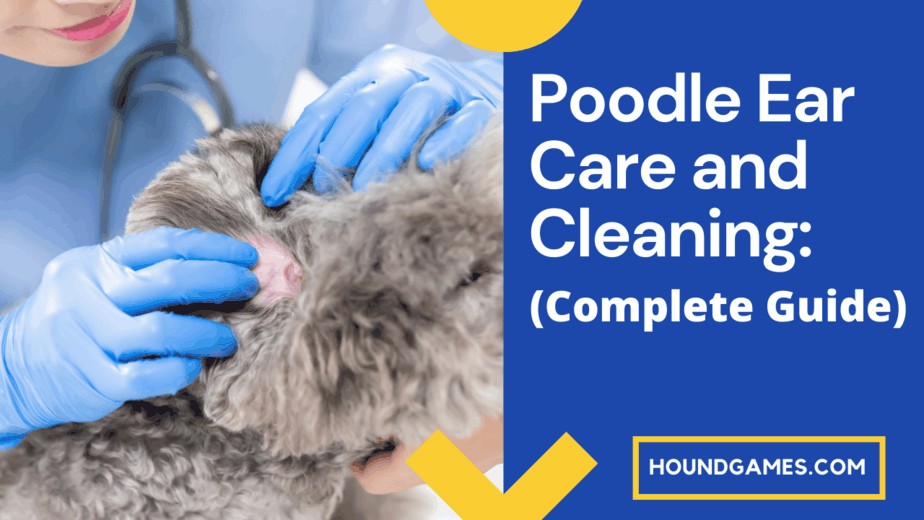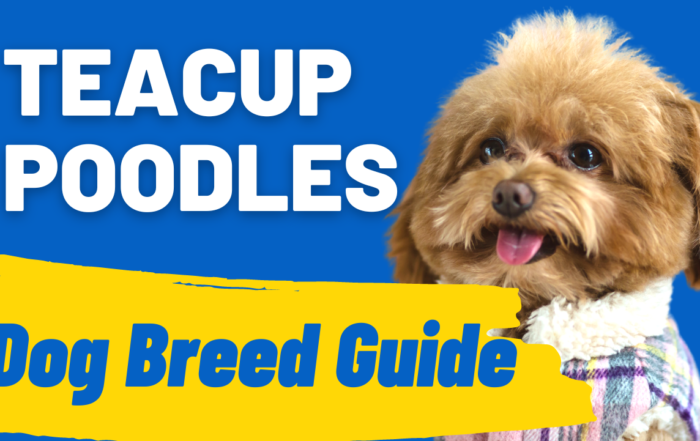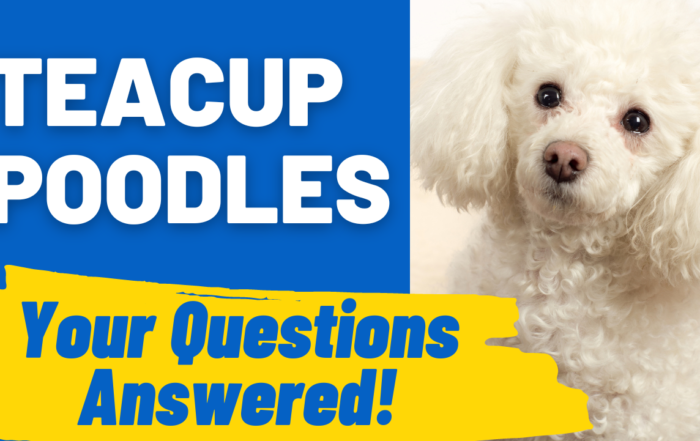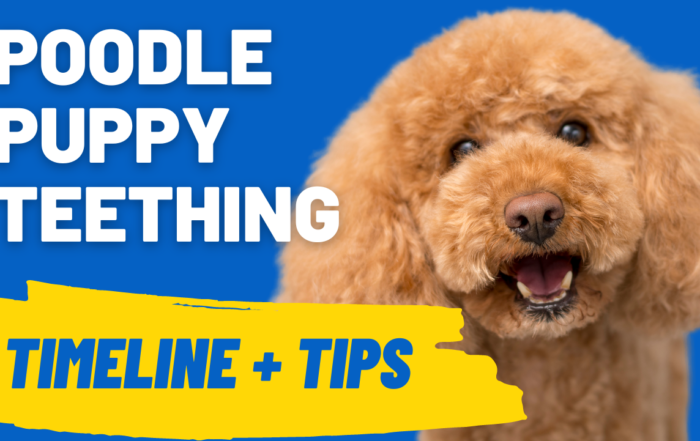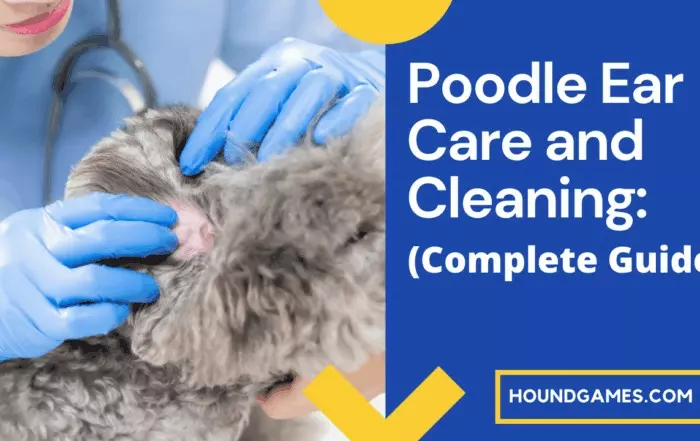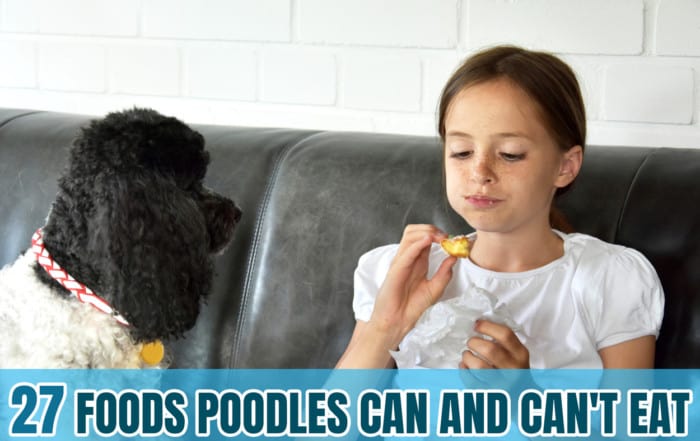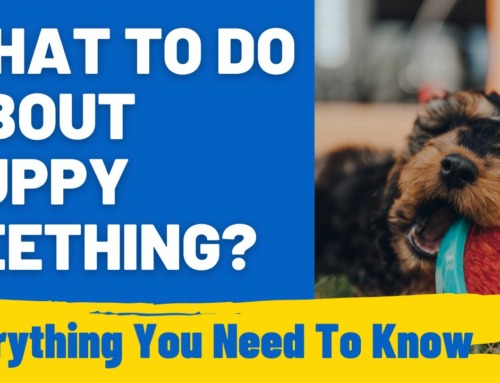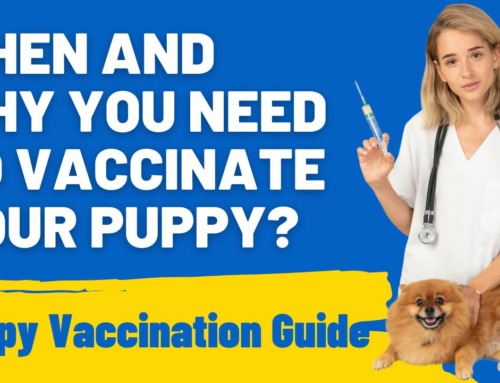Poodles, whether of the Toy, Miniature, or Standard variety, require much more grooming and upkeep than other breeds of dogs. This includes keeping their coat clean and free of mats, as well as paying special attention to their ears, which can otherwise be prone to ear infections.
Knowing how to properly clean your poodle’s ears is critical in avoiding a costly vet visit for a painful ear infection.
Whether you will be cleaning your Poodle’s ears yourself, or taking them in for regular grooming and ear cleaning, it’s important to know the basics of Poodle ear care.
What can I use to clean my poodle’s ears?
You should clean your Poodle’s ears with a veterinary-approved ear cleaning solution. If your poodle’s ears are smelly, then it’s possible they have a yeast infection, a bacterial infection, and/or mites, in which case a veterinarian will be required.
If your poodle just needs a regular ear cleaner, then there are some good options now available online.
We recommend the veterinarian-approved Epi-Otic Advanced Ear Cleaner. You simply apply liberally to a cloth or cotton and clean the ear canals.
The ear cleaner that I use for my Toller’s ears includes a drying agent. This is because they are mostly at risk of an ear infection after swimming, which we do quite frequently during the summer months as they enjoy the water.
Using the ear cleaner from their veterinarian after each time we go swimming helps to ensure no bacteria can live in a moist environment in their ear, and turn into an ear infection.
Your veterinarian or dog groomer may suggest one of the products they have on hand – likely because they’ve chosen that product as they believe it to be the most effective and safe – or they may be able to direct you to an option that is available for sale in a local pet store or online.
Vet’s Best Ear Relief Wash + Drying Agent is a good option for a total ear cleaner, with ear wash, that is then followed up with a drying agent to ensure moisture doesn’t remain behind that might cause an infection.
What you shouldn’t do is try to create your own ear cleaner, or use rubbing alcohol, hydrogen peroxide, or other chemicals to clean your Poodle’s ears.
These chemicals can do more harm than good, and often can further damage a sensitive ear canal.
Ear infections are expensive enough as is, and by trying to create a DIY project to save some money, you can often create an even worse (and more expensive) problem in the process.
We have a post written by a vet on why your dog’s ears get hot that you might like to read.
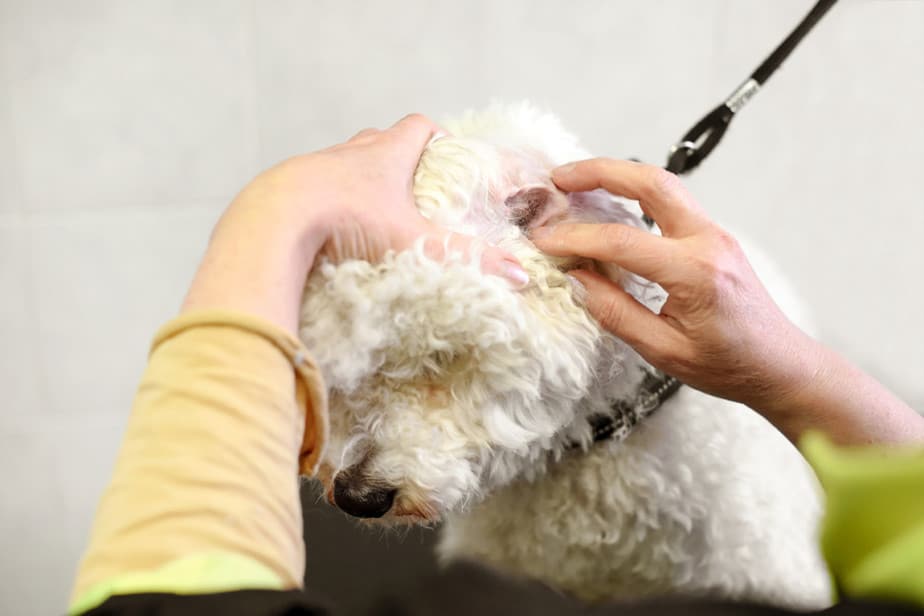
How often should you clean poodle ears?
In general, most Poodles should have their ears cleaned every 1-2 weeks. This schedule is often the best way to prevent an infection from forming in a dog with dropped, hairy ears, such as Poodles.
You should clean your Poodle’s ears with an approved ear-cleaning solution and a cotton ball.
Ear cleaning solutions should have instructions specific to each cleaner, but in general, the steps to cleaning your Poodle’s ears are as follows:
-
Holding your Poodle’s ear flap over the top of their head, place a few drops of the ear cleaning solution into your Poodle’s ear canal.
-
Dropping the ear back into place, massage the base of your Poodle’s ear canal to work the solution deep within the ear.
-
Let your Poodle shake their head to loosen any debris and bring it closer to the surface where it can be cleaned. You can lightly cover their head with a towel, or do this outside, to reduce clean up.
-
From experience – keep your mouth closed during this process! Ear gunk does not taste good! 🤢
-
-
Using a cotton ball – NOT a cotton swab – carefully wipe away any debris that has come to the surface of your dog’s ear.
-
Avoid sticking a cotton swab or your fingers deep within your Poodle’s ears. Instead, repeat the flushing of the ear with the ear cleansing solution until the cotton ball appears clean and there is no more loose debris.
Since ear cleaning and other parts of grooming will be a regular occurrence for your Poodle, it’s important to ensure your Poodle is comfortable with the process.
Teaching your Poodle to give consent for procedures like ear cleaning through a start button – such as placing their chin on a designated target – can make this process smooth and easy.
For more information on Cooperative Care in dogs, check out https://fearfreepets.com/modules/module-4-cooperative-care/.
Otherwise, if you force your Poodle through this process every 1-2 weeks, you can create further problems and end up with a Poodle that does not allow ear cleanings and needs to be muzzled or sedated.
This creates a stressful problem – for both you and your Poodle – so it’s best to avoid it with proper training instead.
Do poodle’s ears need to be plucked?
Some Poodles, but not all Poodles, will need their ear hair to be plucked. This is because Poodles can grow a copious amount of hair deeper within their ear canals than can be found in other breeds.
This ear hair can trap dirt, debris, and bacteria within the deeper ear canal. This sets up your Poodle’s ears to be the prime environment for cultivating an infection.
However, it’s certainly not pain-free to have your ears plucked, so it shouldn’t be done unless your Poodle’s veterinarian or groomer recognizes that it’s causing a problem for your Poodle.
Poodle ear hair removal
If your Poodle’s ear hair is causing problems and leading to ear infections, you’ll want to consider plucking their ear hairs.
In general, this process needs to be performed once or twice a month for Poodles that need their ear hair to be removed.
You’ll want to invest in a powder that is designed for removing ear hair in dogs because it will help you to grip the hair better.
This means you can effectively remove the hairs quickly, without causing extra stress pulling on a hair repeatedly.
Hemostats will be used to grab the ear hair, a few strands at a time, and quickly pull and remove the hairs.
When doing this, you should move quickly to lessen the pain of tugging on your dog’s ear hairs.
You should also only remove hairs you can see causing problems in the ear canal. You can damage your poodle’s ears if you are digging deeply for hairs.
You should also consider shaving or trimming any hairs that may be causing problems that are closer to the outside of the ear. This process, unlike hair plucking, is painless for your Poodle.
If you are uncomfortable or unsure about this process, you should ask your dog’s veterinarian or groomer to do it for you or teach you how to safely pluck your Poodle’s ears.
Are you interested in reading our post: Poodle Face Shaving: Everything you need to know.
How to prevent ear infections in poodles
The biggest step you can take in preventing ear infections in Poodles is to keep your Poodle’s ears clean and dry. Moist and dirty environments within the ear are the perfect breeding ground for ear infections.
Regular cleaning, every 1-2 weeks, with a safe and gentle ear cleanser will help remove any debris, kill any bacteria, and keep the ear dry and clean.
It’s a good idea to also aerate your Poodle’s ears as much as possible. If your Poodle is laying on their side having a nap, flip their ear over so the air can get to it. 30-minutes of aerating your Poodle’s ears every day will do wonders for infections that are caused by the warm, moist environment.
Plucking your Poodle’s ears if their ears require it can also help to prevent an infection.
Besides regular cleaning, you should also consider cleaning your Poodle’s ears anytime they go swimming or might otherwise have gotten moisture or bacteria in their ears.
Regular cleaning will also help you notice early signs of ear infections, which will allow you to tackle the problem before it becomes worse.
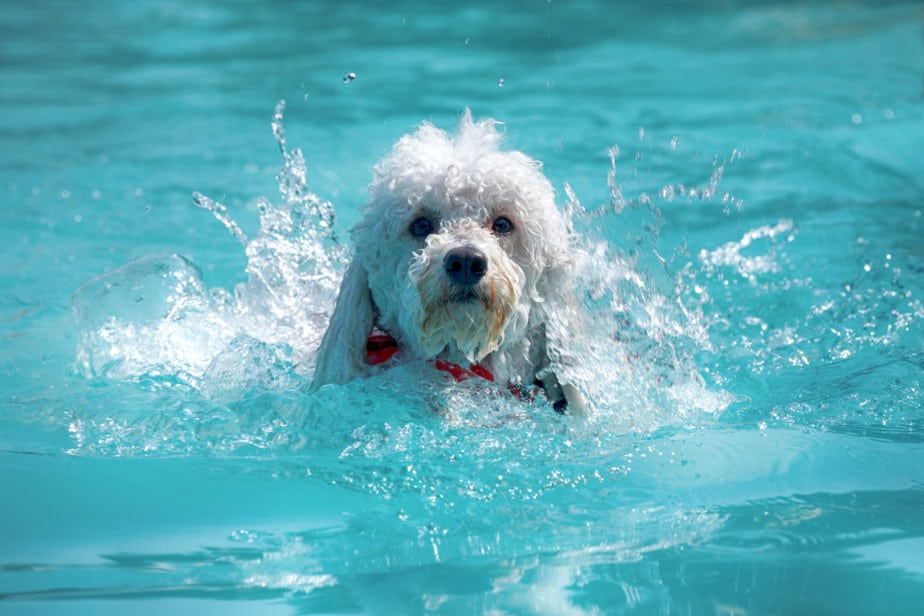
Why do my poodles’ ears stink?
If your Poodle’s ears stink, they likely have an ear infection. A bad odor coming from your Poodle’s ears is one of the surest ways to tell that there is something wrong deeper within your Poodle’s ears.
You may also notice your Poodle shaking their head, or their ear may be painful to the touch. Brown, green, and yellow discharge may also be present.
Infections that have progressed further can also begin to bleed or cause more severe effects such as affecting your Poodle’s balance, or other symptoms that can appear neurological in nature.
At the first sign of any of these symptoms, you should take your Poodle to their veterinarian for treatment.
Ear infections cannot be treated simply by cleaning the ears at home, and your Poodle needs appropriate medical care to prevent further damage.
What is the brown stuff in my dog’s ears?
If your Poodle has brown goop in their ears, they’re almost certainly dealing with an ear infection. The occasional brown or black specks are to be expected when cleaning your Poodle’s ears, but it shouldn’t be a thick, brown, goopy substance.
This ear gunk also often smells and your Poodle may show signs of pain and irritation such as shaking their head, rubbing their ear, or moving away when you touch their ear.
If you notice your Poodle’s ear is full of brown gunk, you shouldn’t attempt to clean your dog’s ears yourself. Instead, make a vet appointment for appropriate medical treatment.
An ear infection not properly treated can spread into the middle or inner-ear and can cause permanent damage, not to mention awful pain.
What is the best dog ear cleaner?
The best ear cleaner is the one that is designed to fit you and your Poodle’s lifestyle. If you’ll be cleaning frequently due to swimming, you’ll want a gentler ear cleanser than the ones you may use if you are only cleaning their ears every other week.
I have two ear cleaners that I personally use for my dogs.
One is called Oti-Soothe + PS. This cleaner contains 0.15% Salicylic Acid and 0.01% Phytosphingosine HCl as the active ingredients. It also contains aloe to soothe ears when they’re being cleaned.
I use this ear cleaner for regular ear cleanings in most cases.
However, I have another ear cleaner that I use when my dogs go swimming, as it also contains a drying agent to reduce any leftover moisture in their ears after a dip in the lake.
This cleaner is called MalAcetic Ultra Otic Cleanser. The active ingredients are 1% Hydrocortisone, and 0.15% Ketoconazole.
Not only does it help with drying out the ears after a swim, but it’s also an anti-inflammatory, antimicrobial, and antifungal, to help stop a problem before it gets worse.
Both of these products were obtained through my dog’s veterinarians. They were more expensive than you might find otherwise, but being able to prevent future ear infections is helpful for both my dogs and my wallet!
As an example, the more expensive ear cleaner cost me almost $30 for 8 fluid ounces.
Windi’s last ear infection (before I was using this cleaner) cost around $500 and was extremely painful for him to deal with.
For an online option these two are your best bet:
Vet’s Best Ear Relief Wash + Drying Agent
DIY home poodle ear cleaner
There are no DIY ear cleaners that are recommended for cleaning the inside of your dog’s ears.
You are much more at risk of causing your Poodle further problems by attempting to mix your own ear cleaning solution than is worth it.
Your local pet store, or your dog’s veterinarian or groomer, are great places to obtain ear cleaners that are safe and effective for your Poodle instead.
However, if you only need to clean the outside flap of your Poodle’s ear, you can create a solution that can help clean their ear flap.
Mixing a 50/50 solution of white vinegar and distilled water can help to clean the ear flap itself.
However, it should not be used inside of your dog’s ear, and it won’t fix an already-present ear infection.
Instead, purchasing an appropriate ear cleanser should be considered a normal part of your budget for caring for your Poodle.
Prevention of ear infections is so important in the breed, not only to save them the painful (and expensive) experience, but also because ear infections are much more likely to occur again in the future once they’ve happened.
We also have this post you may like to read: Poodle Puppy Teething Stages: Timeline and Guide
Your Poodle Feeding Guide: Toy, Mini, Standard
There’s much to learn when it comes to feeding your Poodle. Things like what food they should eat, how much they should eat, and what human foods should be avoided. We've simplified things with [...]
Teacup Poodles: Breed Information, Behaviors, Training, and Health
There's nothing more adorable than a Teacup Poodle. Although not officially recognized as there own breed by the American Kennel Club, they are none-the-less bred and sold. They are actually a toy poodle that [...]
Teacup Poodles: Your Questions Answered
Teacup Poodles are the crème de la crème of miniature dog breeds. They’re fluffy, cute, and affectionate, making them an irresistible addition to the family. They offer ample amounts of loyalty, joy, and companionship, [...]
Poodle Puppy Teething Stages: Timeline and Guide
Poodle puppies, like all dogs, go through a teething period. There are various phases you will go through during this time, and they can be challenging. Hopefully this guide and teething timeline will help you [...]
Poodle Ear Care and Cleaning: (Complete Guide)
Poodles, whether of the Toy, Miniature, or Standard variety, require much more grooming and upkeep than other breeds of dogs. This includes keeping their coat clean and free of mats, as well as paying special [...]
27 Foods Poodles Can and Can’t Eat: Fruits, Vegetables, Meats, Nuts
Can poodles eat human food? Ask anyone and you will soon find that most people have a blanket response… either a straight yes, or a resounding no! But the answer should be: it depends on [...]

